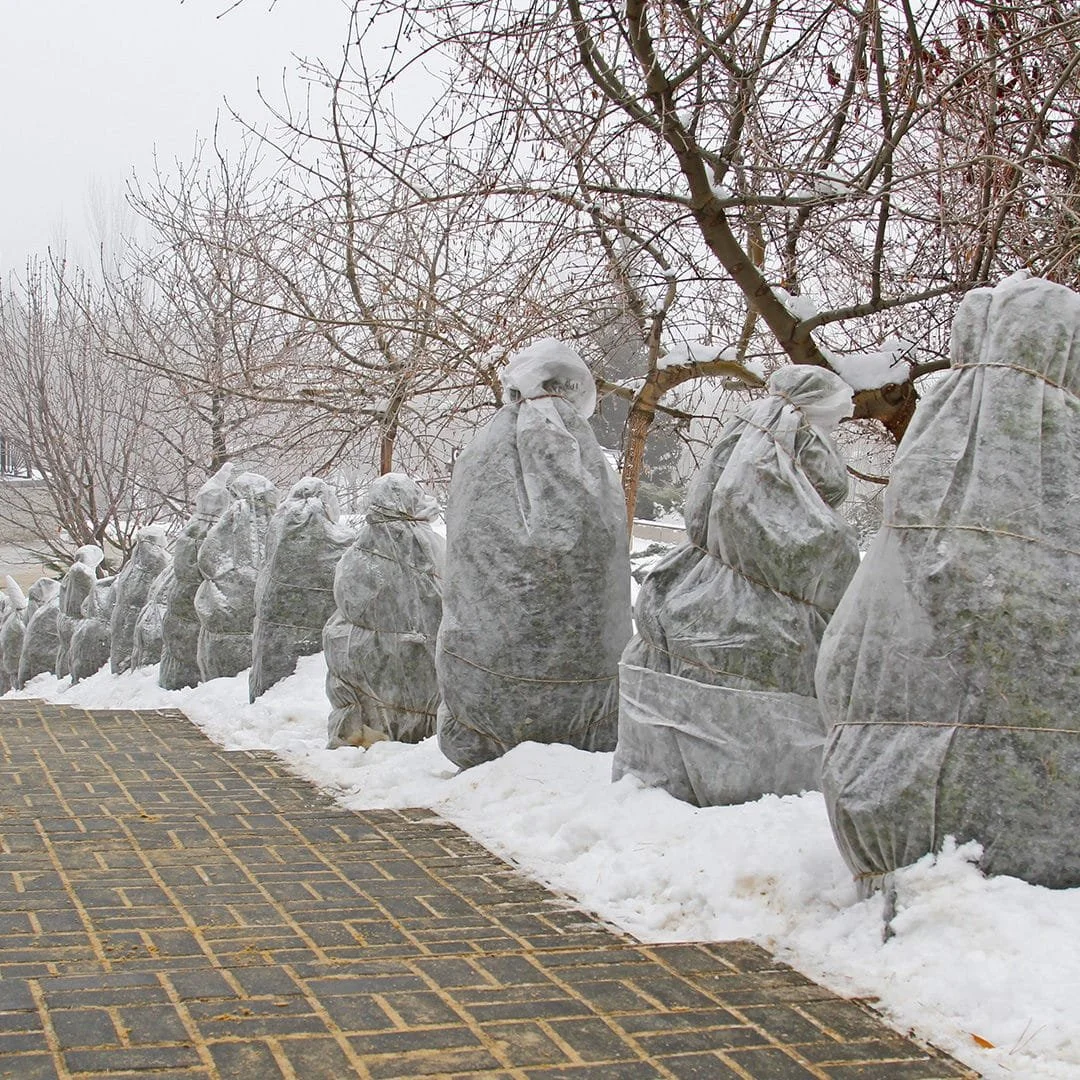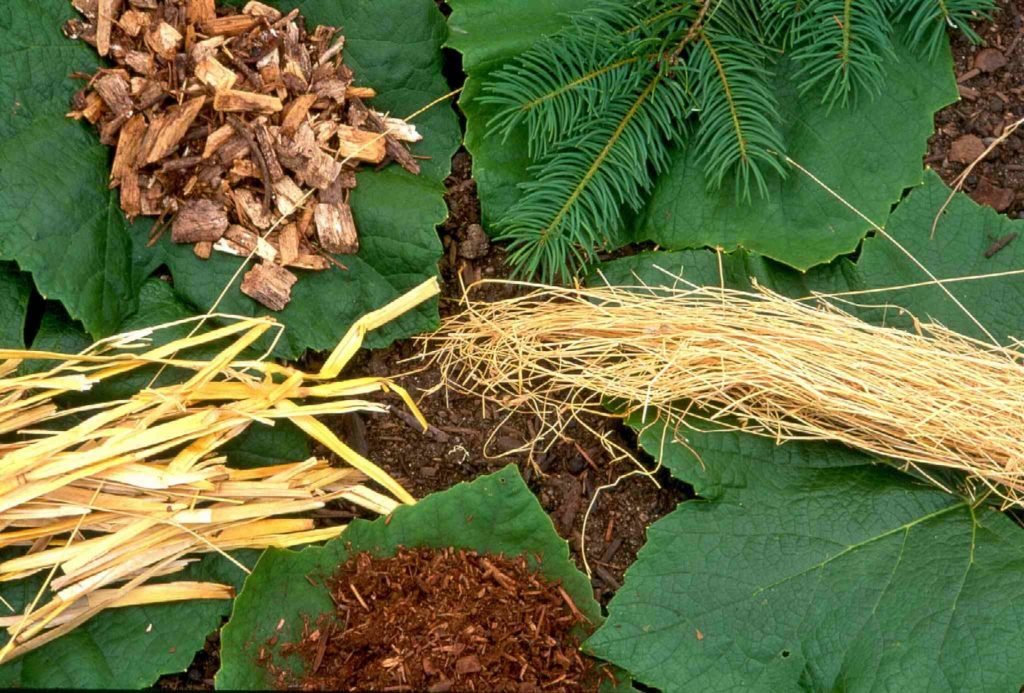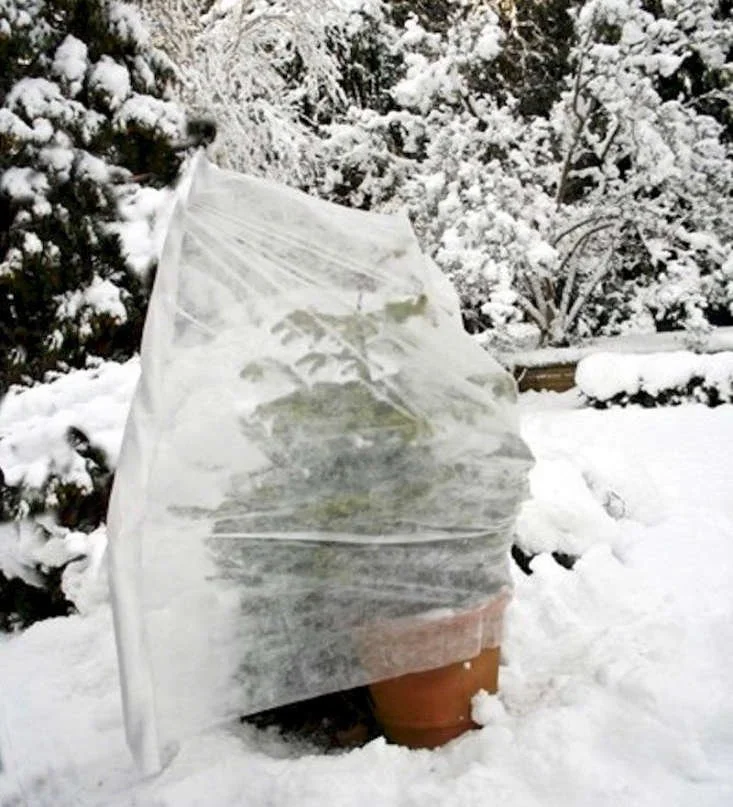Fall Is The Perfect Time To Start Thinking Winter Landscape Protection
If extreme winter weather has ever taken a toll on your landscaping and plants, you aren't alone. Every spring, gardeners in regions hit by a tough winter discover the damage it can cause to trees and shrubs. Fortunately, you can take steps in autumn to prepare your landscaping and plants for what's coming.
"Now," said Ian Thomas- a Client Service Representative at Villani Landshapers- "is the time to think about winter protection of trees and shrubs with netting, burlap, or tree wrap to protect your landscape investment."
What To Watch For
Midwinter thaws can "fool" plants into breaking dormancy too early, exposing tender, new growth to harm by the next cold snap.
Alternating freeze/thaw cycles can heave new plants out of the ground, leaving roots exposed to drying wind and sun.
Deer, mice, rabbits, and other animals gnaw bark and browse leaves and twigs when other food becomes scarce during long, cold winters.
Bright winter sun heats up smooth tree bark, which can freeze and crack when temperatures drop quickly at sunset.
Frozen soil means plants can't take up water to replace the moisture lost from evaporation and transpiration.
Mulch isn’t just attractive, it actually insulates the roots of your trees and shrubs keeping them warmer and protected from harsh winds, ice and temperature fluctuations. If your mulch has worn away during the summer, it is a good idea to add more in the fall. Make sure you have 2 to 3 inches covering the roots of your plants.
You can also lay straw over perennial and flower beds. Protect outdoor plants in winter with screens or frames.
Wind, Sun & Water
Dry winds and winter sun can dry out or "burn" conifer needles and broadleaf evergreen foliage, which continue to transpire (give off water vapor) during winter.
It may seem pointless to water gardens in winter when many plants are dormant, but there are good reasons to provide irrigation during the winter months. Evergreen trees and shrubs loose a great amount of water during cold, dry weather, particularly on windy days.
Unless rainfall is sufficient, these plants need supplemental irrigation at least once per month during the winter months to keep soils moist. Even dormant plants benefit from winter watering.
Winter is hard enough on your landscape; you need to ensure that your snow and ice management plan makes protecting your landscape a priority.
Stabilization
Newly planted trees may also require stabilization, but not all trees require staking. To determine if staking is necessary, shake the tree gently from side to side. The base of the tree should remain steady within the ground. If you can see the rootball move, stake the tree for winter.
You can also keep potted plants on dollies so you can wheel them to a sheltered location or indoors when temperatures drop if necessary.
It can be beneficial to create a structure or cage around some plants. A chicken wire cage is useful as a cold barrier for trunks when filled with straw. Use twine to wrap tall shrubs, such as arborvitae. This brings the limbs in closer so they don’t break if snow builds up on them. Use stakes to prop up horizontal limbs that might break if snow makes them too heavy.
Chemicals
It's important to know about the types of chemicals that will be used and how that will affect your plants and grass. Many agents, like salt, can damage plants. A Client Service Representative can answer any and all questions you might have!
Piling snow on grass for long periods of time can damage it and snow piles can also starve nearby plants of oxygen. Obviously, you want to avoid placing snow directly on top of shrubs and other landscaping.
Although wet, heavy snow can damage branches, snow cover is usually good for plants. A layer of snow provides helps insulate the soil and roots from fluctuating temperatures.
Healthy plants are more likely to get through winter unscathed. Plan your winter-protection strategy today!
Contact us for more information about winter protection and all of your seasonal maintenance needs and check us out online at www.villani-landshapers.com.



